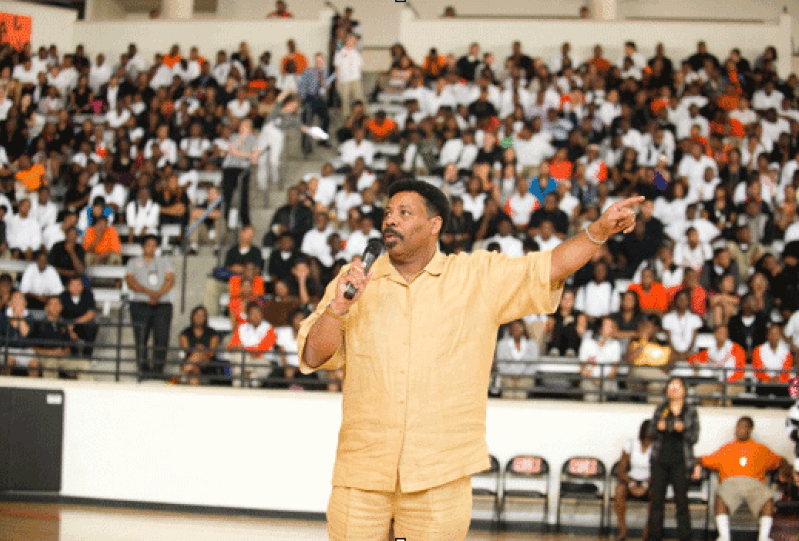
Pastor Tony Evans of Oak Cliff Bible Fellowship in Dallas, Texas is working to alleviate racial disunity in the church and in our nation. He recently released a book addressing racial reconciliation entitled "#WeCanDoBetter: Healing the Racial Divide," and has founded The National Church Adopt-A-School Initiative where diverse churches nationwide can work together to provide mentoring, tutoring, and family support services to students.
The George Zimmerman trial brought racial tension in America to the surface. In an interview with The Gospel Herald, Dr. Tony Evans said that he wrote his latest book as a response to the racial disunity that resulted from the case - a reminder to our country that this racial divide has not yet been bridged. "We have not grown up as much as we thought we had," he says - "Our culture definitely needs a shot in the arm [to heal the racial divide]."
While many tried to deliberate whether Zimmerman had created a hate crime, Dr. Evans believes that the justice system should rather focus on whether an act of violence had been committed against another human being. "We can't read peoples' hearts; what we can do is judge peoples' actions," he said. Evans believes that the solution to racial reconciliation in America begins with supplanting cultural character issues; our culture is being defined by "all the wrong value systems," and right value systems need to be put in place in the home and in schools in order to solve this problem. "I think if we get character issues straight, we will deal with a lot of the racial issues," he said.
Unfortunately, the racial divide can be seen in our churches as well. Though there are exceptions, people of the same race will most often congregate together for worship and for Bible study. When asked whether this modern-day segregation is something that needs to be addressed, Evans said that churches should "as much as is possible reflect the kingdom of God" - it should be "made up of different classes, different races, [and] different backgrounds." We see a beautiful picture of this - a diverse group of believers worshiping Jesus Christ, the Messiah in Revelation 7:9-17.
"Yet at the very same time," Evans said, "we know that people gravitate to things that are either to their liking or things that are more comfortable for them - that's where leadership comes in." Pastor Evans says that the leadership of a church has to be very intentional to cross the racial barriers that exist in their congregation; they can do this by welcoming people from different racial backgrounds into their church, by diversifying their staff, and by partnering with churches whose demographics are different than theirs for service projects.
One way for churches to serve together is through The National Church Adopt-A-School Initiative, where Evans hopes that congregations across the nation will work together to provide mentoring, tutoring, and family services for public school students. Through this initiative, churches with different demographics can "cross-fertilize as they serve together." Evans hopes to impact students' lives while "promoting racial unity through the impact ... getting to know one another through the common goal of serving the students and families," he said.
When asked whether he believes that political interests have contributed to the racial divide in the church, Evans said that he does - "Democrats and Republicans should never be allowed to divide the Kingdom of God. We've allowed secularism to enter the church rather than the church impacting the world," he said. This is a tragedy - Christ-followers are called to be the salt and light of the earth (see Matthew 5:13-16), a way for others to see God's love and goodness through them. "We're supposed to be a part of another kingdom," Evans reminds the church.






